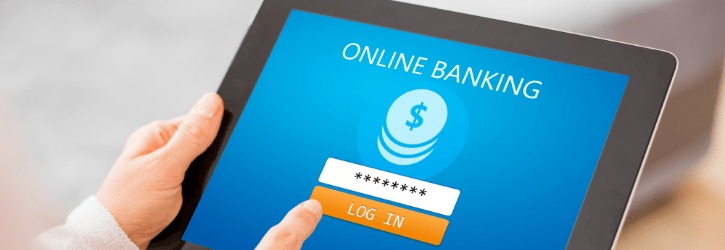Welcome To The Data Leak Lawyers Blog
We focus on the latest news surrounding data breaches, leaks and hacks plus daily internet security articles.
We focus on the latest news surrounding data breaches, leaks and hacks plus daily internet security articles.

It has been reported that a Clearview AI fine in the sum of £17m is being considered by the Information Commissioner’s Office (ICO) over allegations that serious data breaches have occurred.
The issue is about the collection of public images and how they have been used by the company as part of facial recognition technology that it offers. The ICO has suggested that the processing of the public information may not be as expected by data subjects, and it may be deemed as unfair. The company disputes that they have done anything wrong and has pointed out that the images they use are already available in the public domain.
This could be a substantial fine if it is issued, and the question over whether the data processing of the information in question was lawful or not could be a contentious one.

IT system data leaks could lead to huge amounts of incredibly personal and sensitive information being leaked or exposed. Victims could be eligible to claim data breach compensation now on a No Win, No Fee basis.
We see these kinds of errors happening all the time, and it is why we represent thousands of people for cases. We are entitled – by law – to protection and safeguarding when it comes to personal information. If this is ever abused or neglected, victims have rights.
As leading lawyers, our job is to make sure that the victims can access the justice that they deserve.

In accordance with the GDPR, the General Data Protection Regulation, UK businesses and organisations have a variety of obligations they must abide by to ensure they process and store personal information appropriately. However, the nature of the business world can often mean that companies do not have sole responsibility for their data. Relationships with external partners and contractors can mean that outsiders are also granted access to private information. Where these external companies or individuals fail to protect this personal data, third-party security breaches can occur.
Many businesses are still struggling to catch up with their legal responsibilities and to update their own data protection policies, but that does not mean they can ignore the policies of their partners. In fact, it is essential that data protection is a priority in any business relationship, and companies must consider how well their partners can protect personal data before disclosing it to them.
If you have been affected by a data breach, you could be eligible to claim compensation for the harm caused, even if it was provoked by the errors of a third party. Anyone who is considering a claim can come to us for free, no-obligation advice on their case.

In the wake of a data breach, it can be difficult to know what to do to protect yourself and take action in light of the harm you may have been caused. As leading specialists in data breach claims, Your Lawyers – The Data Leak Lawyers – can advise you of your legal rights in the event that your data is compromised or exposed.
A breach of data protection law can be any incident in which a third-party data controller fails to protect private information in a way that breaches their legal obligations. In accordance with the GDPR, all businesses and organisations are required to use appropriate organisational and technical measures to keep personal information secure, and failing to do so can leave a third party liable for any harm caused to their data subjects.
Data breach claims still represent a developing area of compensation law, but Your Lawyers has been representing clients for data privacy matters since 2014. Some firms have only just begun branching out into data breach claims, but we have developed the expertise to bring our claimants the compensation they deserve.

The police service holds some of the most sensitive information about the population, including the data of many perpetrators and victims of crimes. Police domestic abuse data is among the most private information there can be, due to the safety risks it could provoke if compromised. A data breach could potentially endanger victims and they could be located by their former abusers.
The police force, like any other data controller, is obliged to protect information in accordance with the GDPR, the primary data protection law in the UK. However, there have, unfortunately, been cases in which unacceptable breaches of privacy have occurred, affecting the information of victims of domestic abuse.
Most of us would expect the police to be fully aware of its responsibilities to maintain strong data security, but it seems data protection is still not a high enough priority or focus in some cases. Where mistakes are made, those responsible must be held accountable, and those affected should be fairly compensated for any harm caused. If you have fallen victim to a data breach at the hands of the police, you can contact us for free, no-obligation advice on your potential compensation claim.

Data exposure can cause severe stress and anxiety to those affected, and it can also have a material impact. Many people may not be aware of just how close the cause-and-effect relationship between data breaches and online fraud can be. In fact, there are fraudsters stealing millions every year with the help of stolen information.
Due to the developments of the digital age, technology can now provide a means for fraudsters to expand their practices and develop more sophisticated ways of stealing from victims. Their greatest asset is arguably the wealth of data stores kept by many modern businesses, who take extensive personal details from their employees and customers. If the security of this information becomes compromised in any way, it could equip fraudsters with personal details that allow them to easily and effectively target their victims.
Your Lawyers, as leading, specialist Data Leak Lawyers, has represented many clients who have fallen victim to fraud in the wake of data breaches. If you have been impacted in this way, you may be eligible to claim compensation from those who exposed your information to misuse. Simply contact our team for more information on your potential claim.

Leading Data and Privacy Law firm Your Lawyers have been concerned to learn of an investigation into plans to sell Covid test samples for medical research.
The news was broken in November 2021, and reportedly involves Cignpost Diagnostics, trading as ExpressTest, who are understood to have conducted almost three million tests. It has been suggested that there are plans by the company to analyse samples from swabs and sell data to third parties, according to inews.
The private company is an approved provider of testing, and it has been reported that the company is now being investigated by the UK’s data regulator, the Information Commissioner’s Office (ICO). There was understood to be a tick box as part of the purchasing process for the test that formed as part of a large privacy policy with links to a research programme. This is understood to have since been removed and appears to be the matter at the centre of the investigation.

For many businesses, so much of the work is conducted digitally, a fact that has only become truer since Covid-19 provoked a shift to more remote, online working. However, despite devoting significant expenses to IT resources, some businesses still fail to pay attention to data protection procedures and the tools required to operate their devices securely. From the small start-ups to the global conglomerates, all businesses need proper cybersecurity if they are to be trusted with personal data.
In the headlines, we regularly see data breaches that have occurred as a result of minor, needless oversights. With appropriate data protection and cybersecurity measures, many data security incidents can be avoided, so it is important that we hold businesses accountable when they fail to meet the standards required.
If you have been affected by a data breach for which a third-party organisation was responsible, you could be eligible to hold them to account via a data breach compensation claim. We know how damaging the effects of data exposure can be, which is why we aim to help as many victims to claim as possible.

Recent statistics revealed that there were over 2,300 police data breaches in 2020, according to figures on the number of incidents reported to the ICO. The high figure raises questions about how effectively the force is managing data protection risks and ensuring the cybersecurity of its systems, and whether similar statistics may emerge for the 2021 period which is shortly due to end.
These statistics are particularly concerning given the often extremely sensitive nature of the information held by the police, which can include personal details of crime witnesses and victims. Everyone who discloses personal information to the police should have the right to do so in the knowledge that it will be kept secure and only viewed for specific investigation or work-related purposes. However, there are many unfortunate cases in which people have been let down by the organisation that is supposed to protect them.
If you have been affected by a police data breach, you may be eligible for a compensation claim. Our expert lawyers can offer free, no-obligation advice on your case.

Hospital staff accessing medical records without any good reason to do so can amount to a serious breach of patient privacy and can allow victims to claim medical data breach compensation.
Any form of inappropriate access to confidential medical data can amount to an abuse of access rights and a breach of the GDPR. Those who have lost control of their personal information arising from such an incident could be eligible to pursue No Win, No Fee data breach claims.
Your Lawyers – The Data Leak Lawyers – are leading privacy claims experts, representing thousands of victims for data cases. We have secured damages for victims who have suffered from such data breach events, and our team is on hand to help anyone affected by an incident of this nature.
Fill out our quick call back form below and we'll contact you when you're ready to talk to us.